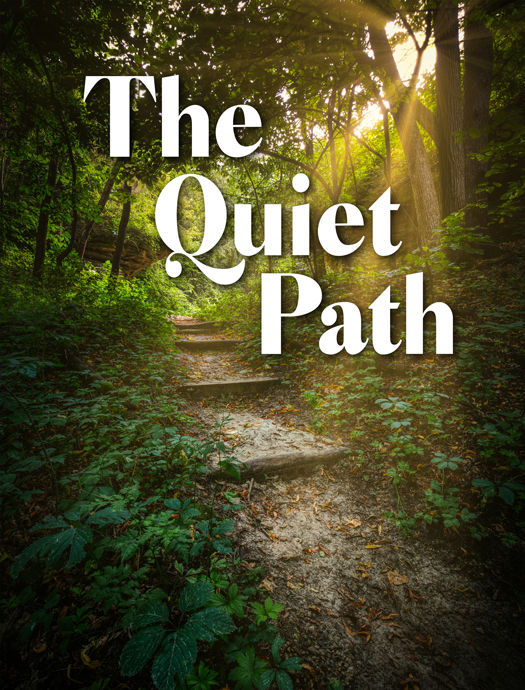A little-known yet profound spiritual refuge where there is no dogma, ritual or commercialism.
By Anthony Talmage
We live in an age of instant gratification, where mindfulness has become a corporate buzzword, spirituality is marketed like a fitness program, and enlightenment is promised in “three easy steps.” We are beset by spiritual consumerism—where meditation courses come with price tags and gurus build social media empires.
Yet, beneath all the noise, there is a quiet and profound spiritual refuge where there is no marketing, no evangelizing, no books promising instant transformation. It spreads only by word of mouth, or articles like this one, attracting those who are ready for a direct experience of the Divine, without dogma, ritual or commercialism.
What is this seemingly miraculous portal to spiritual fulfilment? It’s called Subud, which is a Sanskrit acronym symbolising “Right living according to the highest that is possible for man in submission to God’s will.” For practitioners it offers a profound counterbalance to the 21st century addiction to speed and superficiality. In a world that teaches us to chase, strive and acquire, Subud whispers a different message: surrender, trust, receive.
The movement was founded in Indonesia 100 years ago by a humble clerk called Muhammad Subuh Sumohadiwidjojo, who talked of an extraordinary experience while out for a walk to get some air one humid night. Just in front of a hospital under construction, called the Centrale Burgerlijke Ziekenhuis, a brilliant light in the sky descended and enveloped him, he said. He began shaking and trembling violently, and he thought he was having some kind of heart attack.
He was only about 300 metres from where he lived, so he hurried home and threw himself on his bed. He noticed that the light was now inside his body, and he was filled with some kind of radiance. He was then guided by a supernatural energy to stand and walk about, his body shaking and vibrating. This phenomenon, he recalled, went on night after night until finally it petered out. He realised the experience seemed to have had a cleansing effect on his life, physically, mentally and spiritually.
He later discovered he could pass this energy onto others. All he had to do was stand in quiet contemplation while people gathered around him. And those who “received” the energy found they, in turn, could communicate it to others. And so a global spiritual movement was born. As one candle will light another, gradually thousands around the world received the power. Recipients are of all faiths (or none). Many practitioners remain Christians, Muslims, Buddhists or followers of other traditions.
One Subud follower is Rachman Mitchell, a medical doctor who recounts his transformative experience: “After a deep sleep I was suddenly very wide awake and became aware of a ball of bright light above the French doors in front of me. It moved first into my head and then filled the whole of my body. It was accompanied by an intense, blissful happiness and a feeling of being in my real home.”
Like many in the movement, Dr. Mitchell received the power through practicing, in the company of others, a spiritual exercise known in Indonesian as the latihan kejiwaan, or inner training. This amounts to getting in the right frame of mind, letting go and then allowing the energy to move your body in any way it deems fit.
Husein Rofé, an English linguist living in Indonesia, was the first non-Indonesian to be initiated into Subud. He told friends that his experience with the latihan was transformative. “It gave me a sense of inner peace and spiritual guidance that I’d been looking for all my life.”
Hussein Rawlings, from New Zealand, recalls a deeply moving experience when he introduced his father to Subud. He performed the latihan in the older man’s presence, and he was “opened.” When it happened, his parent said that he finally understood the meaning of the biblical phrase “peace which passeth all understanding.” Shortly before his death, he told Hussein that he had spent his life looking outward for meaning, but now he knew to surrender to the power he felt within.
Subud’s founder, who became affectionately known as Bapak, remained humble at heart throughout the rest of his life, insisting that he was nothing special, and that the power was a gift from God to cleanse and guide the human heart. Not long before he died in 1987, Muhammad Subuh startled his followers by telling them that the world was populated by invisible entities, far greater in number than people. And that these energies were continuously seeking “soul mates” with whom to combine. Mankind’s actions, he said, are therefore influenced by whatever spirits they invite in. This, Bapak taught, could lead to misery blotting out other, higher forces, and setting up sicknesses in mind and body.
Conversely, he reassured followers that they could overcome this contamination by tuning into higher forces that would eject lower orders. This higher power would intervene to the extent of a person’s need and capacity to receive. If a person allows the High Life Force to flow into him or her, it would not only be that person’s protection but would also flow from them to others and from them to more still until an immense power gathered strength.
This is the essence of Subud. There are no mantras, no meditations, no teachings to memorize—just the pure, personal experience of divine grace working within.
Author’s Note: You can find more information about Subud here: https://www.whatissubud.net/whatissubud/about.html
Anthony Talmage is author of five books in his Psychic Mind series: Dowse Your Way to Psychic Power, In Tune with The Infinite Mind, Unlock the Psychic Powers of Your Unconscious Mind, How to Crack the Cosmic Code and Mindfulness and The Pendulum all available in Kindle, printed and audio versions from Amazon and all good online bookshops. You also can check out his free podcast at: https://www.buzzsprout.com/1742930.





